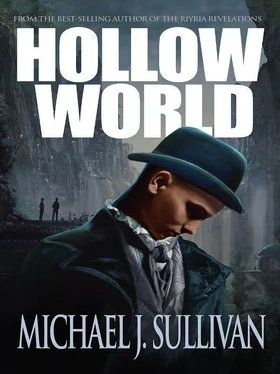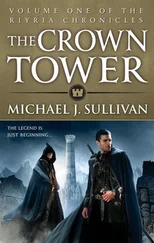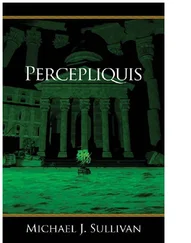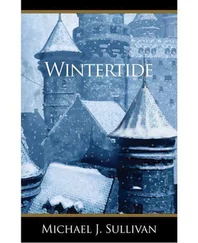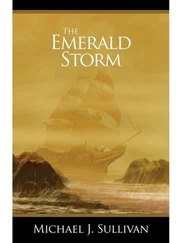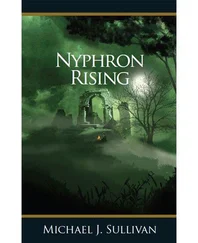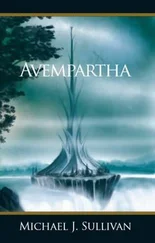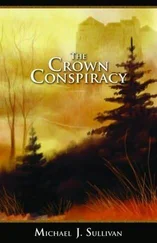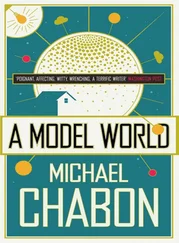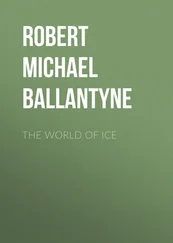“That’s what the pigs said.”
“Huh?” Warren looked at him with squinting eyes.
“That’s what the pigs said in George Orwell’s Animal Farm .”
“Never read it.”
“You’d have liked it. Short, easy to read. About corrupt leaders of revolutions—basically an attack on communism.”
Warren smirked. “Don’t be stupid. Do I look like Stalin? We’re going to build this new society, you and I, not some greedy politicians, rich fat cats, or intellectual elitists—just us, two regular Joes, and we won’t make the mistakes everyone else did.”
“I’m pretty sure everyone else said the same thing.”
“Quit being a prick, will you? Listen. We both remember what it was like when we were kids. Life in the fifties was perfect. Women raised the children. Men provided the money. Children were safe and happy, and the government didn’t interfere. Everyone knew their place, and America roared like a well-tuned GTO. I’m just trying to get us back on track.”
Ellis wondered if Warren remembered the last conversation they’d had in the bar. It would have been nearly a decade for him, so he doubted it. His friend never had the best memory, even as a kid, but that shouldn’t matter. They had talked about “the good old days” enough that the topic was permanently burned into Warren’s brain. Nostalgia was a popular bar-stool topic, and they had reminisced often.
“How would you know what life was like then? How could either of us? We were three years old in 1959. You’ve invented a world in your head that never really existed—false memories injected into your brain by television shows that you remember as documentaries. The fifties had their own set of problems.” Ellis was talking to himself just as much as Warren. He was thinking out loud, honestly looking for an intelligent answer.
Warren rolled his eyes.
“No—really,” Ellis said. “Think a second. I’ve recently gotten a longer view of the past. We both have. Looking back—I think the brain has a way of erasing the bad stuff. When I remember Peggy, I hardly recall the arguments or the frustrations. I only remember the good times. People are always saying how their high school years were the best in their lives, but I bet if any of them really went back, if they had to deal with parents and teachers and restrictions and peer pressure to do stupid things, they wouldn’t think so. And when we were kids, what did we really know about the world? We both believed in Santa, too, right? Kids are isolated from the real problems, so, of course, it seemed better.”
“Yeah, yeah, and the fifties sucked for women, blacks, and the gays, right? Big fucking deal. Look around, Ellis. They don’t exist anymore, and they aren’t going to, because you and I will be the fathers of the new human race.”
“Do you really think women are going to be satisfied with the June Cleaver existence you’ve mapped out for them? Of course, they won’t really be June Cleavers, will they? The Beave’s mom could vote, and smoke, and discovered there was more to life than the scent of Pine-Sol. They divorced their Wards so they could have careers. You don’t want that, so instead you’ve ordered a set of female slaves that won’t ever talk back. But father knows best, right? So that’s okay. Or don’t you care just so long as your version of the past is created?”
Warren looked at him and shook his head as if he were nuts. “We have the tools to make paradise on earth. I just plan on using them.”
Ellis stared at his friend while overhead a chevron of geese honked its way south. “What is paradise, Warren?”
“What do you mean, what’s paradise?”
Ellis had a sinking suspicion Warren’s idea of paradise was a world the way he wanted it to be. The idea that others might not agree—and not be wrong—never revealed itself as so much as a flicker in the dark quiet of a certain mind.
“I always thought—well, at Thanksgiving everyone would always ask for the same things, right?” Ellis said. “Beauty queens always gave the same answer when asked what they wished for. World peace was always at the top of everyone’s list. After that, everybody added an end to world hunger, then the elimination of disease, discrimination, and the absence of want. Isn’t that supposed to be paradise? But that’s Hollow World, Warren. They’ve already done all that. Isn’t Hollow World already paradise? Maybe we’re just not seeing it because it’s so alien to us. It’s like—you know—really winning the lottery. Everybody dreams about it, but if it were to happen, we wouldn’t be happy because it wouldn’t really be exactly like we envisioned. It wouldn’t be the end of all problems. Nothing ever is. Maybe we can’t see that Hollow World is paradise, because it’s perfect but we’re not.”
“Bullshit.” Warren waved a calloused hand at him.
“How is that bullshit?”
“Because it’s all wrong. Paradise isn’t a lack of want. That’s hell, brother.” Warren glanced back at the lab again, then, clapping Ellis on the back, encouraged him to take a few more steps away. “This is the mistake everyone makes. Life is all about conflict. The pursuit of happiness—that’s life, not the achievement. It’s all about the journey, my friend. Everyone always used to ask how God could let terrible things happen. They didn’t understand. I didn’t, either, until I was alone under a pile of snow in a shack I built with my own hands, surviving on worms. I was teetering on the brink, Ellis—I really was. Thought I was going to die, and I can honestly say, I’ve never lived so fully and deeply before. Every minute, every decision I made could decide if I would survive or die. When spring came and I felt the warmth of the sun and ate that wonderful bushy-tailed squirrel—man—I knew I was alive. I was part of nature like every other animal that made it through the long dark. I never felt like that before, but that’s how we’re supposed to be. Life is intended to be a battle, a struggle. God designed it that way. Think about it. Everything is always in constant conflict. Heat versus cold, light versus dark, gravity versus…whatever. Every living thing in existence has to fight and kill to survive. Even plants are in competition with each other for light and water. The whole ecosystem is based on conflict. Who do you think did that? It’s God, Ellis. God made the world like a cage match. You go in and you fight to win or die trying.”
“Survival of the fittest,” Ellis said, putting that piece in place. In one season in a branch hut, Warren had managed to succeed where centuries of scholars had failed—reconciling science and religion.
“Exactly.” Warren nodded. “You see, everyone thought Darwin was anti-religion, but they had it wrong. They just refused to see the real God.”
“A sadist God?”
Warren smirked. “You only say that because you think conflict is bad. It isn’t. It’s like competition in capitalism. It drives the system and makes it work. Just think for a second. How much fun would it be to play a game like Monopoly if you started out owning everything and having all the money? The fun of playing the game is trying to win. Once you’ve won, what’s the point of playing?”
“So you think God made it so no one can win?”
Warren clapped his hands together, then tapped his nose with his index finger. “Look at history. Every time we solved a problem, it caused two more. Solve world hunger and what happens—overpopulation, right? Discover penicillin and you get super bugs. The world is a problem-creator so we humans never run out of things to combat, because that’s what we love to do. But the baldies, they don’t understand this. They’re trying to wipe out problems, engineer away conflict, and it’s driving them insane. They spend their time painting pictures and singing songs. That’s not living. That’s what people do in prison.”
Читать дальше
